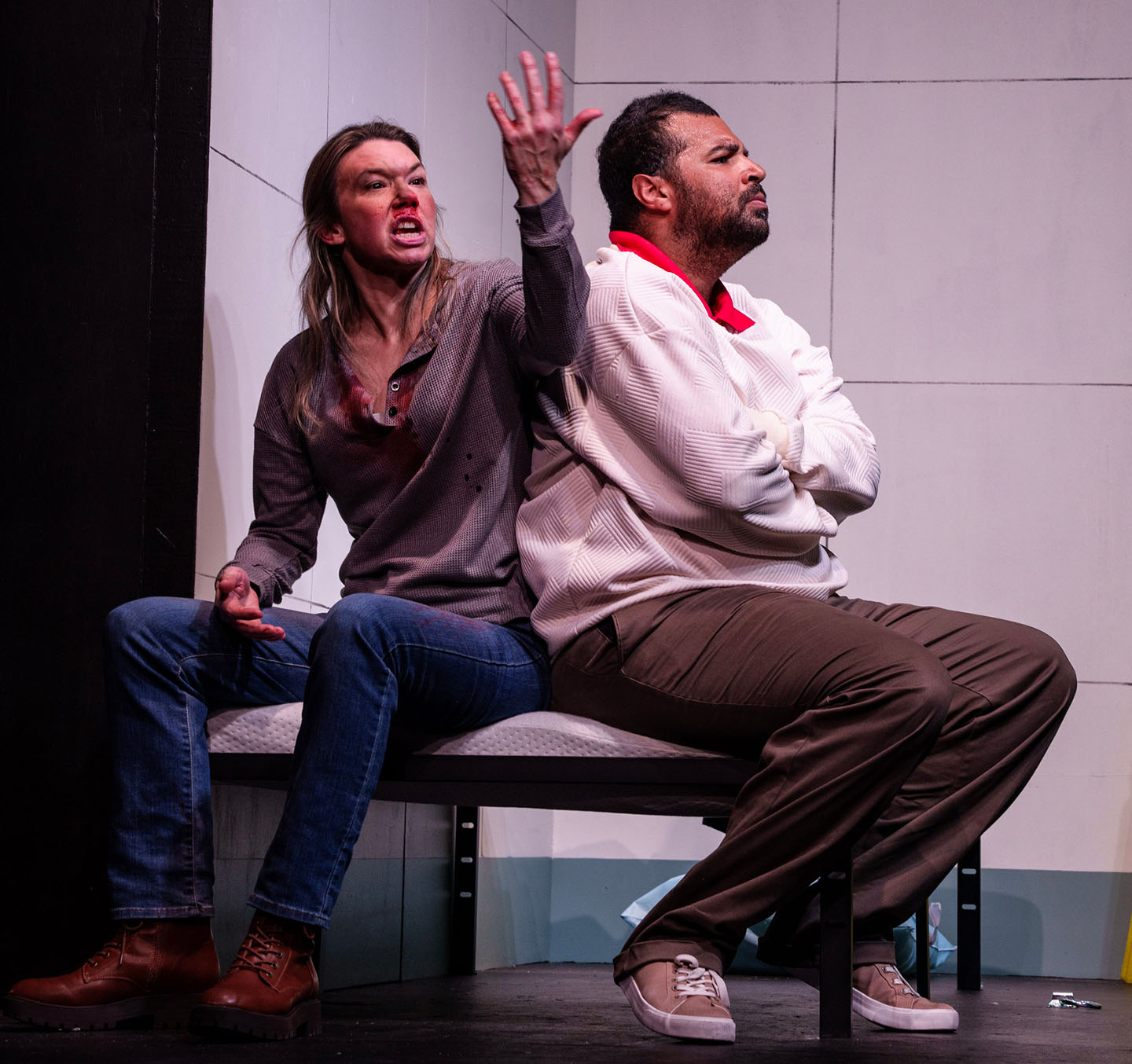Those familiar with my productions of Shakespeare (or let’s be honest anyone who’s seen a fair amount of Shakespeare over the years, I think sometimes folks locally give me way to much credit (or blame) here) understands that time and place will rarely appear on stage as 16th century Europe. It’s not that I don’t love me some frilled collars, doublets, and hose — I’m attempting to keep these plays alive. Shakespeare in his own time was a popular writer staging works that looked contemporary to the audiences seeing them, so why try to make them into a museum piece now? The argument many use about the Bard’s entrenchment at the top of the dramatic canon is that his works are timeless, universally relevant.
Plays also have to be set somewhere. As I began to dig into As You Like It I was struck by what I surmised the forest of Arden represented. In the play it is first the noble Duke (in our production Queen) Senior who flees to the woods after being usurped and banished by her younger, jealous sister Frederick. Senior is said to live like Robin Hood and is quickly attracting other lords and ladies of court to her side. Senior’s daughter Rosalind (held by Frederick at court) is banished next, escaping to Arden with her cousin Celia and the court fool Touchstone. Orlando, also in a dispute with a jealous sibling, is then kicked out by the wrathful Queen and then learns of his brother’s plans to kill him in his sleep and so — you guessed it — he runs away to the forest. Sure, Arden has its “simple” native denizens who tend to goats and sheep but it draws all of these noble souls together with all manner of folks, from the grave philosopher Jaques to the soulful singer Amiens.
Our production of As You Like It is modern-dress. I’m telling folks it is taking place right here, right now. Anyone who’s ever been downtown will surely recognize the inspiration for our set, and those paying attention to costume and prop details will notice several other local nods. I’ve even soundtracked the entire show with songs from bands on our own New Granada Records. Am I saying to take us literally that the Forest of Arden stretches from Kiley Gardens to Curtis Hixon Park? Certainly not.
Arden is a metaphor. It’s representative of getting away, escaping the grasp of society and all it would impose on us. It’s not just that you can’t pull a cellular or wifi signal, time itself is suspended. Fools become courtiers, women become men, rich “kept” girls go pastel goth, a man becomes the pupil in the ways and means of love. Gender and sexuality become a muddle. It is not just an upside-down version of daily life but it is magical, liminal space where anything can happen.
What this space allows people to do, in my estimation, is to simply connect. To enjoy one another, learn from each other, discover new possibilities, take on new roles. Arden then may be considered a space where we might all be able to create what Judith Butler (2004) calls a “viable and livable life.” There is the paradox that Arden is indelibly tied to a patriarchal, aristocratic world with very strict rules as to what “counts,” but even the bitter, greedy usurping Queen has a change of heart in the fifth act (spoiler alert!).
We create our Ardens. Sometimes unintentionally through a dead battery or occupying a wifi dead zone. Other times we escape through our music, late-night philosophizing, or even spirited debate. Of course there’s also the obvious way we can do this by literally getting out into nature — but who’s got time for that? 🙂
We don’t need shade trees or a lack of gadgets to get away or to allow for possibilities to emerge that exist outside of the status quo or our own personal ideological frame. We can do it by being better listeners, by being open to surprise (be that of an idea or a person or a moment). I like to think that we might look at Arden as a metaphor for the literal and metaphysical space between us. Martin Buber (1958) said that “All real living is meeting” and that “I think no human being can give more than this. Making life possible for the other, if only for a moment.”
I can’t help but think of world right now, ripping apart at the seams over religion and race, sexuality and gender. We’re more interested in winning than a just outcome, we continue to create and uphold laws that dictates what counts as a livable life. Maybe the chaotic liberation of a space like Arden can act as an alembic for all that divides us. Buber (1947) also wisely noted that “It takes a lifetime to learn how to be able to hold your own ground, to go out to the others, to be open to them without losing your ground. And to hold your ground without shutting others out.”
I’m hoping that I’m better at that in 2017. I hope that we all are. I hope for us all to find Arden. To be liberated, to love, to laugh, to learn. So there you have it, that’s why Tampa and that’s why now. I hope that you join us, we open on January 13!
Further reading:
William Shakespeare, As You Like It (Folger Shakespeare Library, 2004)
Albert R. Cirillo, ‘As You Like It: Pastoralism Gone Awry’, ELH, 38.1 (1971), pp. 19-39
Carol Thomas Neely, Distracted Subjects: Madness and Gender in Shakespeare (Cornell University Press, 2004)
Judith Butler, Undoing Gender (Routledge, 2004)
Martin Buber, Between Man and Man (MacMillan Company, 1947)
Martin Buber, I and Thou (Charles Scribner’s Sons, 1958)











